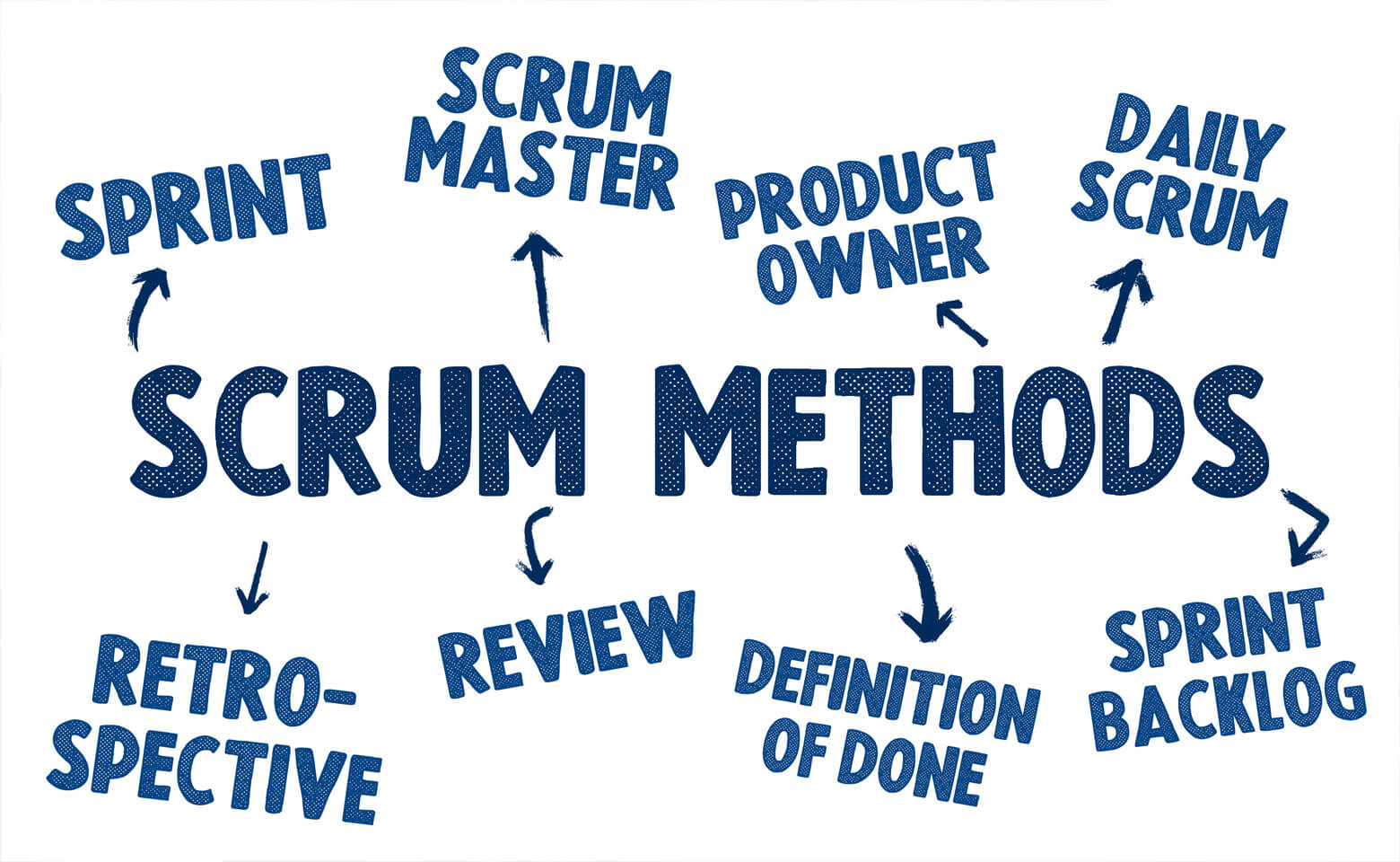Agile work environment creates a new function
- Project managers become scrum masters: not without risks
- Role of middle management as a go-between
- Different profiles require different skills
The fact that project managers are becoming scrum masters in the agile work environment, which is becoming more and more common, is not without risks. That is the opinion of Pieter Van Brussel and Eric Boulet of the Blue Chip Boutique 'Financial Institutions' (FI) within TriFinance. They still see a role for middle management within the new work organization.
Role of a scrum master
What's a scrum master? What role does he play? What profile does he have?
Eric Boulet: "A scrum master is first and foremost a coach who helps a team to evolve towards more agile working and more self-management. He is a people manager with soft skills such as empathy and the ability to stay 'zen' in difficult situations. He is a confidant who helps create an environment in which everyone can do their job. He facilitates continuous improvement and protects his team in the larger organization".
Pieter Van Brussel: "A scrum master also needs communicative skills in order to answer difficult questions appropriately and challenge team members in a constructive way. He places the team first and as a leader he is a 'servant'. Not someone who determines the direction to follow, but helps the team to find and walk the path to follow. He is not a hierarchical superior. He's a coach and a fixer. He makes sure the team can work efficiently by helping to solve blockages."
The scrum master plays a new role in the organization of work. Where do you get the people who qualify for it?
Pieter Van Brussel: "I see in several companies that project managers take on this role. That's not without risk."
Eric Boulet: "Indeed. The fact that project managers become scrum masters is a logical step, but the differences between the two roles are big. Unlike the project manager, the scrum master has no authority over the team members. And he is not responsible for their work. A project manager needs to change mindset to become a successful scrum master. Those who can't, become a risk factor in that role."
Pieter Van Brussel: "The change of mindset means letting go of control over the work of the team members. That is sometimes an issue. A project manager who is mainly focused on people management will be able to transform more easily into a scrum master than a project manager who is primarily concerned with the work itself. He better evolves into a role as 'product owner' or analyst".

Role of management
What about middle management in such an agile framework?
Eric Boulet: "That's a tricky issue. For middle management, I see a role as a go-between between the 'product owner' and the 'C-level', especially in companies with a thousand or more employees. When there is a difference of opinion, an employee at the base is not equal to someone at the top. However, middle management can then spar. Within a team, it can play a role when no agreement can be reached on something and a decision is still needed. The middle management can have authority over scrum teams and for instance be responsible for the evolution towards an agile work environment".
Pieter Van Brussel: "This is indeed a difficult issue, because in an agile work environment, responsibility and accountability lie with the teams, who organize the work themselves. The middle management could be responsible for several teams in, for example, the insurance department of a company. Teams are then responsible for one aspect of it. By the way, top management also has to adapt to the agile environment and play a more serving role".
Suppose someone doesn't perform well. How do you deal with that in an agile environment?
Pieter Van Brussel: "The scrum master can facilitate. He can play a role, but he is not a team leader. He can't fire anyone. If it has to come to that, the top management will decide after consultation with the team".
Eric Boulet: "A lot can be solved by entering into a dialogue. In such situations, more experienced employees can take the lead".

Different roles require different skills
Can the role of 'scrum master' be combined with the one of 'product owner'?
Pieter Van Brussel: "I'm not in favour of that. Both roles have a different focus. The product owner focuses on the content and outside the team, on the stakeholders and the customers. The scrum master has an internal focus on the team. That's not easy to combine".
Eric Boulet: "Add to that that the product owner takes a rational attitude and goes for value creation. While the scrum master is more focused on the relational. Finding those two properties in the same person is not obvious. Successfully playing the two roles together is even more exceptional.”
Pieter Van Brussel: "I see a scrum master as having several teams under his care rather than combining that role with being a product owner. Those two roles have a conflict of interest. The product owner pushes his team to perform more. The scrum master acts as the 'protector' of his team".
The pinnacle of an agile environment and self-managing team is one without a scrum master, isn't it?
Pieter Van Brussel: "In theory, yes. But I wouldn't delete the role of scrum master. He is the coach who removes obstacles and ensures continuous improvement. You could theoretically spread those tasks over the team members, but their work revolves around creating value and developing products. What the scrum master does has value in itself."
Eric Boulet: "In professional literature you find articles about scrapping the scrum master role. The argument is that he can mean more to a project than taking on 'trivial' tasks as a scrum master. I am also not in favor of this vision. The role of scrum master is valuable."
Related content
-
Article
How data management enables faster, better decision-making across the organization
-
Reference case
How Data kickstarted a transformation at a leading financial institution
-
Reference case
Helping a major bank turn complexity into structure: Olivier Renard on his digitalisation mission
-
Blog
E-Invoicing Compliance 2026: Where does your organization stand? Take the survey
-
Blog
Growth Story: Jorn Hillaert – Building change through people and co-creation
-
Blog
How cross-functional teams strengthen climate risk assessments
-
Career as Consultant
Business Analyst - Banking/Insurance
-
Career as Consultant
Operations consultant - Banking
-
Career as Consultant
Treasury & Financial Markets Consultant
-
Career as Consultant
Finance professional - Banking/Insurance
-
Freelance opportunities
Freelance Assignments - Banking/Insurance
-
Career as Consultant
Medior Project Manager - Banking/Insurance